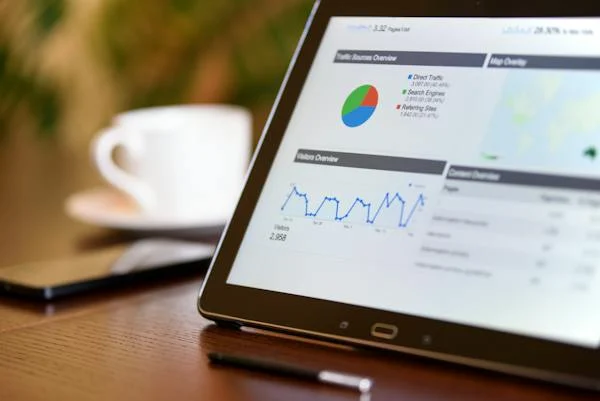In the ever-evolving landscape of digital marketing, email remains a stalwart channel for reaching and engaging your audience. But with the plethora of email marketing tools available, it’s essential to choose the right one for your business needs. In this comprehensive comparison, we’ll dive deep into two popular contenders: Mailchimp and Zoho Campaigns.
By the end of this detailed guide, you’ll have a clear understanding of which email marketing tool is your ideal companion for the year 2024. So, without further ado, let’s embark on this journey of exploration and discovery.
Mailchimp: A Closer Look
Let’s kick things off by taking an in-depth look at Mailchimp, a name that has become synonymous with email marketing for many. Mailchimp is renowned for its versatility and feature-rich platform, making it a top choice for businesses of all sizes.
User-Friendly Interface
Mailchimp’s user interface is designed with both simplicity and functionality in mind. Upon logging in, you’re greeted with a clean and intuitive dashboard. The layout is uncluttered, allowing you to navigate effortlessly through the platform’s various features.
The standout feature of Mailchimp’s interface is its user-friendliness. Whether you’re a seasoned email marketer or a newcomer, you’ll find it easy to create email campaigns, design templates, and manage your subscriber lists. The drag-and-drop email builder simplifies the process of crafting visually appealing emails without the need for coding skills.
Robust Automation
Automation is at the heart of effective email marketing, and Mailchimp excels in this department. It offers a wide range of automation features that empower you to create complex customer journeys. You can segment your audience based on various criteria, trigger emails based on user behavior, and send personalized content at scale.
For example, if you run an e-commerce store, Mailchimp’s automation allows you to set up abandoned cart email sequences, recommending related products based on a customer’s browsing and purchase history. This level of personalization can significantly boost your conversion rates.
Extensive Template Library
Mailchimp boasts an extensive library of professionally designed templates. Whether you’re looking to send out newsletters, product announcements, or event invitations, you’ll find a template that suits your needs. These templates are not only aesthetically pleasing but also responsive, ensuring your emails look great on both desktop and mobile devices.
In-Depth Analytics
Analyzing the performance of your email campaigns is crucial for refining your strategy and maximizing results. Mailchimp provides in-depth analytics and reporting tools that offer insights into open rates, click-through rates, conversion rates, and more. You can track the performance of individual emails and entire campaigns, helping you identify what works and what needs improvement.
Integration Ecosystem
Mailchimp’s integration capabilities are extensive, covering a wide range of third-party applications and services. Whether you need to connect your email marketing efforts with your e-commerce platform, CRM system, social media accounts, or advertising tools, Mailchimp has you covered. This seamless integration allows you to streamline your marketing efforts and access valuable data from various sources in one place.
A/B Testing
A/B testing, also known as split testing, is a vital component of optimizing your email marketing campaigns. Mailchimp offers robust A/B testing features that allow you to experiment with different elements of your emails, such as subject lines, sender names, content, and send times.
By conducting A/B tests, you can gather valuable data on what resonates best with your audience. Mailchimp’s platform makes it easy to set up these tests, track the results, and make data-driven decisions to improve your email performance.
Personalization
Personalization is a cornerstone of effective email marketing, and Mailchimp provides extensive personalization options. You can dynamically insert subscriber information, such as their name, into your emails to create a more personalized and engaging experience. Additionally, Mailchimp allows you to segment your audience based on various criteria, enabling you to send targeted content to specific groups.
Landing Pages
In addition to email campaigns, Mailchimp offers a feature for creating landing pages. This can be incredibly useful if you want to drive traffic to specific offers or collect leads through dedicated pages. The drag-and-drop landing page builder is user-friendly, allowing you to design and publish landing pages without the need for coding skills.
Mobile App
In today’s mobile-centric world, it’s essential to have the flexibility to manage your email marketing on the go. Mailchimp’s mobile app enables you to monitor your campaigns, view analytics, and even create and send emails directly from your mobile device. This level of convenience ensures you stay connected with your audience no matter where you are.
E-commerce Integration
For businesses in the e-commerce space, Mailchimp offers seamless integration with popular e-commerce platforms like Shopify and WooCommerce. This integration allows you to sync your store’s data, track customer purchases, and create targeted email campaigns based on shopping behavior. It’s a powerful tool for driving sales and increasing customer retention.
GDPR Compliance
Data privacy and compliance are paramount in email marketing. Mailchimp takes these concerns seriously and provides features to help you comply with regulations like GDPR (General Data Protection Regulation). You can manage subscriber consent, provide clear opt-in and opt-out options, and maintain a transparent approach to data handling.
Customer Support
While Mailchimp offers customer support, it’s worth noting that some users have reported challenges with reaching their support team, particularly for free plan users. However, they do provide a vast knowledge base that includes tutorials, guides, and resources to help you troubleshoot issues independently.
Zoho Campaigns: A Comprehensive Analysis
Now that we’ve explored Mailchimp’s features in detail, let’s turn our attention to Zoho Campaigns and see how it compares.
User-Friendly Interface
Zoho Campaigns prides itself on offering an intuitive and user-friendly interface. Much like Mailchimp, Zoho Campaigns provides a clean and straightforward dashboard that allows you to navigate effortlessly through its features. This simplicity is a significant advantage for users who value ease of use.
The platform’s drag-and-drop email builder empowers you to create visually appealing emails without requiring any design or coding expertise. Zoho Campaigns also offers pre-designed templates to kickstart your email campaigns quickly.
Automation Capabilities
Zoho Campaigns offers a range of automation features to help streamline your marketing efforts. You can set up workflows and autoresponders, making it easier to engage with your audience at various touchpoints along their customer journey. While Zoho Campaigns may not match Mailchimp’s advanced automation capabilities, it covers the essentials for many businesses.
A/B Testing
Like Mailchimp, Zoho Campaigns recognizes the importance of A/B testing in optimizing your email campaigns. You can experiment with different elements of your emails and track the results to make data-driven improvements. This feature allows you to fine-tune your email content and strategy for better engagement and conversions.
Analytics and Reporting
Understanding how your email campaigns perform is vital, and Zoho Campaigns provides comprehensive analytics and reporting tools. You can gain insights into open rates, click-through rates, conversion rates, and subscriber behavior. These insights enable you to measure the impact of your campaigns and make informed decisions to enhance your email marketing strategy.
Integration Ecosystem
Zoho Campaigns offers a selection of integrations to connect your email marketing efforts with other essential tools. While its integration ecosystem may not be as extensive as Mailchimp’s, it covers core areas such as CRM systems, e-commerce platforms, and social media. This allows you to centralize your data and synchronize your marketing efforts effectively.
GDPR Compliance
Similar to Mailchimp, Zoho Campaigns places a strong emphasis on data privacy and compliance. You can manage subscriber consent, provide clear opt-in and opt-out options, and adhere to data protection regulations like GDPR. Ensuring that your email marketing practices are compliant is crucial for building trust with your subscribers.
Customer Support
Zoho Campaigns offers customer support to assist users with their questions and challenges. Their support options include email support and a knowledge base with resources and guides. While the availability of support is a valuable resource, it’s essential to note that response times and the depth of assistance may vary depending on your plan.
Choose Zoho Campaigns if:
- You prioritize simplicity and ease of use in your email marketing platform.
- Your automation needs are moderate, and you require basic workflows and autoresponders.
- You’re comfortable with a more streamlined integration ecosystem covering core tools.
- GDPR compliance and data privacy are top priorities for your email marketing practices.
Ultimately, the decision hinges on your specific needs and objectives. Both Mailchimp and Zoho Campaigns offer valuable features, and your choice should align with the unique requirements of your business.
To make the most well-rounded decision, let’s pit Mailchimp and Zoho Campaigns against each other in several key areas:
Pricing
Mailchimp
- Free Plan: Available with basic features, suitable for up to 2,000 contacts and 10,000 sends per month with a daily limit of 2,000.
- Essentials Plan: Starting at around $9.99/month, this plan includes all email templates, A/B testing, custom branding, and support for up to 50,000 contacts.
- Standard Plan: Starting at approximately $14.99/month, this offers additional features like retargeting ads, advanced insights, and automation tools, catering to up to 100,000 contacts.
- Premium Plan: Starting from $299/month, aimed at larger businesses, offering advanced segmentation, multivariate testing, and unlimited seats and role-based access.
Zoho Campaigns
- Email-based Plan: Starting at approximately $3/month for up to 500 subscribers and unlimited emails. The price scales with the number of subscribers.
- Subscriber-based Plan: Starting at around $5/month for up to 500 subscribers (with unlimited emails). The cost increases with more subscribers.
- Pay by Email Credits: Suitable for infrequent senders. Purchase email credits that don’t expire; prices depend on the volume of credits bought.
- High Volume Plans: Custom pricing for large volume senders, offering advanced features and dedicated support.
Mailchimp: Mailchimp offers a free plan for up to 2,000 subscribers, making it an attractive choice for beginners and small businesses. Their paid plans are tiered based on the number of subscribers, and they offer advanced features for larger lists.
Zoho Campaigns: Zoho Campaigns also offers a free plan with limitations on the number of emails you can send. Their pricing structure is based on the number of subscribers and includes various plans to accommodate different needs.
User-Friendliness
Mailchimp: Mailchimp is known for its user-friendly interface and drag-and-drop email builder. It’s an excellent choice for users of all skill levels, including those with minimal technical expertise.
Zoho Campaigns: Zoho Campaigns also boasts a user-friendly interface and a straightforward email editor. It’s designed to be accessible to both beginners and experienced marketers.
Automation
Mailchimp: Mailchimp’s automation capabilities are robust, allowing you to create complex automation workflows, segment your audience effectively, and trigger emails based on user behavior.
Zoho Campaigns: Zoho Campaigns provides automation features, including workflows and autoresponders, but they may not be as advanced as Mailchimp’s. For many small and medium-sized businesses, Zoho Campaigns’ automation is sufficient.
Template Library
Mailchimp: Mailchimp offers an extensive library of professionally designed templates for various purposes. These templates are responsive and visually appealing, catering to a wide range of industries.
Zoho Campaigns: Zoho Campaigns also provides a selection of templates, although its library may not be as extensive as Mailchimp’s. However, you can customize these templates to suit your branding and messaging.
Integration Ecosystem
Mailchimp: Mailchimp boasts a wide range of integrations with third-party applications and services, including e-commerce platforms, CRMs, and social media. This extensive ecosystem allows you to centralize your marketing efforts efficiently.
Zoho Campaigns: While Zoho Campaigns offers integrations with core tools like CRM systems and e-commerce platforms, its integration ecosystem may not be as comprehensive as Mailchimp’s. However, it covers essential areas for most businesses.
Customer Support
Mailchimp: Mailchimp offers customer support through email and a knowledge base. Some users have reported challenges with response times, particularly on free plans.
Zoho Campaigns: Zoho Campaigns provides customer support and a knowledge base. Response times and the depth of assistance may vary depending on your plan.
Conclusion
In conclusion, the choice between Mailchimp and Zoho Campaigns as the best email marketing tool for 2024 depends on your unique business needs and priorities. Let’s recap the key takeaways from our comprehensive comparison:
Mailchimp:
- Offers versatile features and advanced automation capabilities.
- Boasts a user-friendly interface and an extensive template library.
- Provides seamless integration with a wide range of third-party applications.
- Includes robust analytics and reporting for data-driven decision-making.
Zoho Campaigns:
- Prioritizes simplicity and ease of use in its email marketing platform.
- Provides moderate automation capabilities, including workflows and autoresponders.
- Offers a streamlined integration ecosystem covering core tools.
- Focuses on GDPR compliance and data privacy.
Your decision should align with your business goals, budget, and specific requirements. Both Mailchimp and Zoho Campaigns have their strengths and can be effective tools for different types of businesses.
Read Next
Email Marketing for E-commerce: Strategies to Drive Sales and Retention
The Role of User Surveys in Enhancing Email Marketing Strategies
How I Achieved a 400% ROI with My Latest Email Marketing Campaign
Email Marketing for the Fitness and Wellness Sector: Motivating Subscribers to Stay Healthy
The Importance of Mobile-Responsive Design in Email Marketing





















Comments are closed.